 Mengniu Dairy Co, China's largest dairy company by market value, allegedly plotted online attacks with the assistance of a public relations company against its competitors, Yili Group and Synutra International.
Mengniu Dairy Co, China's largest dairy company by market value, allegedly plotted online attacks with the assistance of a public relations company against its competitors, Yili Group and Synutra International.
Mengniu Dairy Co, the largest dairy company in the country by market value, issued a letter on Friday, clarifying the smear scandal.
The incident plotted by An Yong, Mengniu's division manager, was an individual act and was not endorsed by the company, the letter said.?[Full story]?
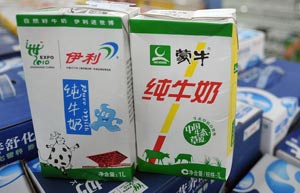
Dairy giant Mengniu in smear scandal
Mengniu Dairy Co, the largest dairy company in the country by market value, on Wednesday denied rumors that it was assisted by a public relations company in plotting online attacks against its competitors, the Yili Group and Synutra International.
Rumors are now circulating that Mengniu made up a story that spread online in July, which claimed Yili's infant formula contained fish oil that could lead to premature sexual development.
Mengniu also allegedly plotted a public relations campaign to create a milk powder scandal, in which Synutra products were reported to have caused baby girls to develop breasts.[Full story]
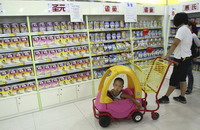
Ministry clears milk of causing early puberty
The Ministry of Health announced on Sunday that it had found no evidence of contamination in milk powder made by a Chinese company after an investigation into reports that it had caused baby girls to show signs of premature sexual development.
At a press conference in Beijing, ministry spokesman Deng Haihua said the investigation found that the contents of sex hormones in Synutra milk powder and samples of 20 other brands did not exceed the qualified amounts of either national or international standards. [Full story]

Founded in 1999 and with headquarter in the core of China Dairy Capital Shengle Economic Zone in Helingeer county of Huhhot, Inner Mongolia Mengniu Dairy (Group) Co Ltd (Mengniu Dairy Group) has a total asset of 8 billion yuan and 30,000 employees, and the production capacity of dairy products reaches 5 million metric tons per year.
Inner Mongolia Yili Industrial Group Co Ltd is a dairy enterprise with spirit of innovation and social responsibility. It is the only one of Chinese enterprises which supplies dairy products for the Olympics. Synutra International Inc is a leading infant formula company in China. It principally produces, markets and sells its products under the "Shengyuan," or "Synutra," name, together with other complementary brands.
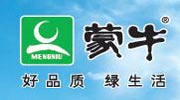
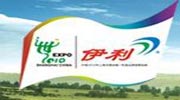
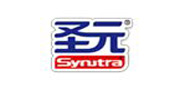

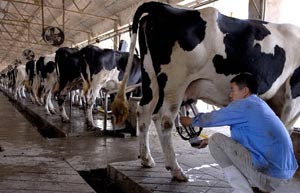 Infant formula scare spares dairy industry
Infant formula scare spares dairy industry
While consumers continue to wag their fingers at Qingdao-based powdered-milk maker Synutra International Inc for allegedly adding hormones to its products, the news won't have a significant impact on China's dairy industry, experts said on Monday.
In early July, after three infants in Wuhan, Hubei province, were discovered to have abnormal levels of two hormones - estradiol and prolactin - consumers blamed Synutra, the manufacturer of the infant formula they had been using. [Full story]
No extra hormones found in milk powder: Ministry
A clinical investigation has found no evidence that milk powder made by a Chinese company caused three infant girls to grow breasts, China's Health Ministry announced Sunday.
At a press conference in Beijing, ministry spokesman Deng Haihua said the probe found the hormone content of the milk powder within normal standards. [Full story]
Anomalies in babies blamed on food chain
After three female infants in Wuhan, capital of central China's Hubei province, underwent abnormal sexual development, their parents blamed the manufacturer of the milk powder they had been using, while experts traced the source even further back in the food chain.
In early July, the worried parents took their children to local hospitals for physical examinations, which showed that the babies' breasts were developing, the Beijing-based Health Times reported on Friday. [Full story]

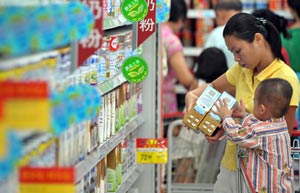
Safety checks proposed for baby formula
Manufacturers of baby formula in China are required to check each batch of raw materials and their finished products for the toxic chemical melamine, according to a new draft regulation.
The draft regulation, which details the requirements for producing baby formula milk powder, was released over the weekend by the General Administration of Quality Supervision, Inspection and Quarantine (AQSIQ), the country's top quality watchdog, to solicit public opinion. [Full story]
New tracking system to boost food safety
Customers in 10 Chinese cities can now get a clear idea about how their meat and vegetable products arrive at their table, as part of the latest effort by the authorities to improve the country's food safety.
The Ministry of Commerce signed agreements on Thursday with mayors from 10 pilot cities to push forward a meat and vegetable traceability system in supermarkets and markets
Through a tracking code on the receipt of their vegetable and meat purchases, customers can track all stages of the food ranging from production to distribution, through the Internet or other terminals in stores.[Full story]

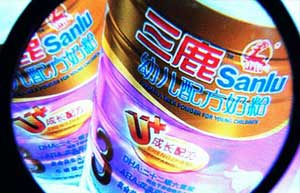
Sanlu confirms bankruptcy filing
Sanlu Group, the center of a melamine adulteration milk scandal that killed at least six babies and sickened 290,000 others, confirmed on Wednesday that it had filed for bankruptcy.
The Intermediate People's Court of Shijiazhuang City, where the company is headquartered, notified the company that it will accept the bankruptcy petition, said a Sanlu spokesman, who declined to say when the filing was made. [Full Story]
Mengniu expects $131m loss due to melamine
China Mengniu Dairy Co Ltd, the nation's largest liquid-milk producer said losses brought on by the melamine scandal would reach 900 million yuan ($131.39 million) in 2008.
The melamine-tainting scandal caused company sales to slump, forcing it to write off inventories and increase raw-milk disposal and sales promotion costs, the company said in a statement to the Hong Kong stock exchange on Dec 23.[Full Story]
Inner Mongolia Yili loss widens
Inner Mongolia Yili Industrial Group Co Ltd said it posted a net loss of 226.04 million yuan in the third quarter, wider than the year-earlier loss of 13.12 million yuan, after a milk contamination scandal hit China's dairy industry.
In a report filed with the Shanghai Stock Exchange, the company said third quarter operating revenue rose 41.16 percent year-on-year to 7.6 billion yuan due to higher sales during the Olympic Games. [Full Story]